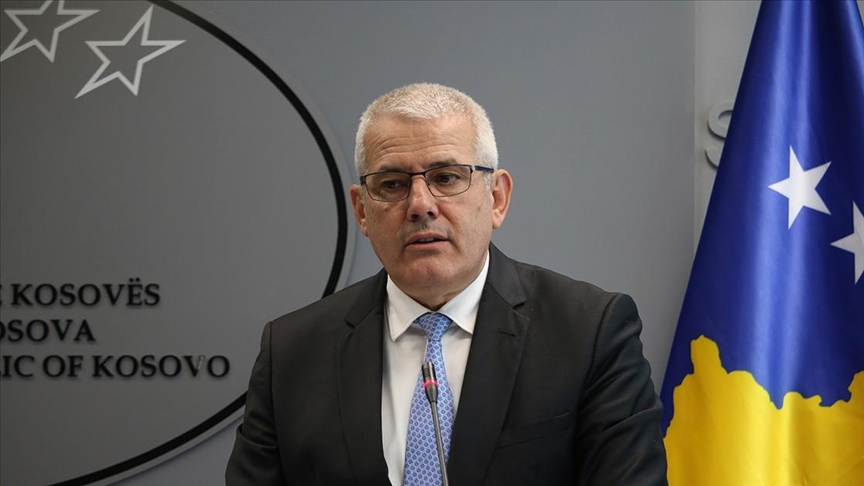BELGRADE, Serbia
Posting footage of an ethnic Serb group that clashed with police on Sunday, leaving one dead, Kosovo’s interior minister on Tuesday claimed evidence is mounting that neighboring Serbia is involved in “terrorist action” in Kosovo.
On Facebook, Xhelal Svecla posted aerial footage showing some 30 people clashing with Kosovo police in the country’s north – an area with a large population of ethnic Serbs, near Kosovo’s border with Serbia.
Svecla claimed that the group in the video was led by Milan Radojcic, the vice chair of Serbian List – a minority political party in Kosovo in the northern town of Zvecan.
“Chief criminal Radojcic was the leader of this terrorist group and of the attack where police officer Afrim Bunjaku was killed. This is more testimony to his terrorist activity against the Republic of Kosovo. The vice chair of Serbian List is the leader of the terrorist attack and the terrorist group,” said Svecla.
According to Svecla, Radojcic’s role in the attack shows the involvement of neighboring Serbia in the attack, specifically mentioning Aleksander Vucic, Serbia’s president.
“The map of the terrorist attack is growing clearer every day. Aleksander Vucic through the Serbian List, and these through their (Serbian List) Vice Chair Radojcic … have undertaken terrorist action against the legal and constitutional order of the Republic of Kosovo,” said Svecla.
On Sunday, a clash broke out in the village of Banjska in northern Kosovo near the Serbian border when a group of armed Serbs blocked a bridge with two trucks. A shootout erupted after the group opened fire on police, with one police officer dead and another injured in the confrontation.
A large number of security forces were dispatched to the region, and the Brnjak border crossing between Kosovo and Serbia was closed.
The area has been the scene of unrest since this April, when local ethnic Serbs boycotted elections in northern Kosovo, followed by protests against the election of ethnic Albanian mayors.
Albanians are by far the largest ethnic group in Kosovo, followed by Serbs, with about half living in the country’s north.
Amid the unrest over the elections, NATO peacekeepers were deployed, including a group of extra Turkish reinforcements.
Kosovo declared independence from Serbia in 2008, and gained recognition from many countries, including Türkiye. But Serbia has never recognized Kosovo, and claims that its territory is still part of Serbia.

